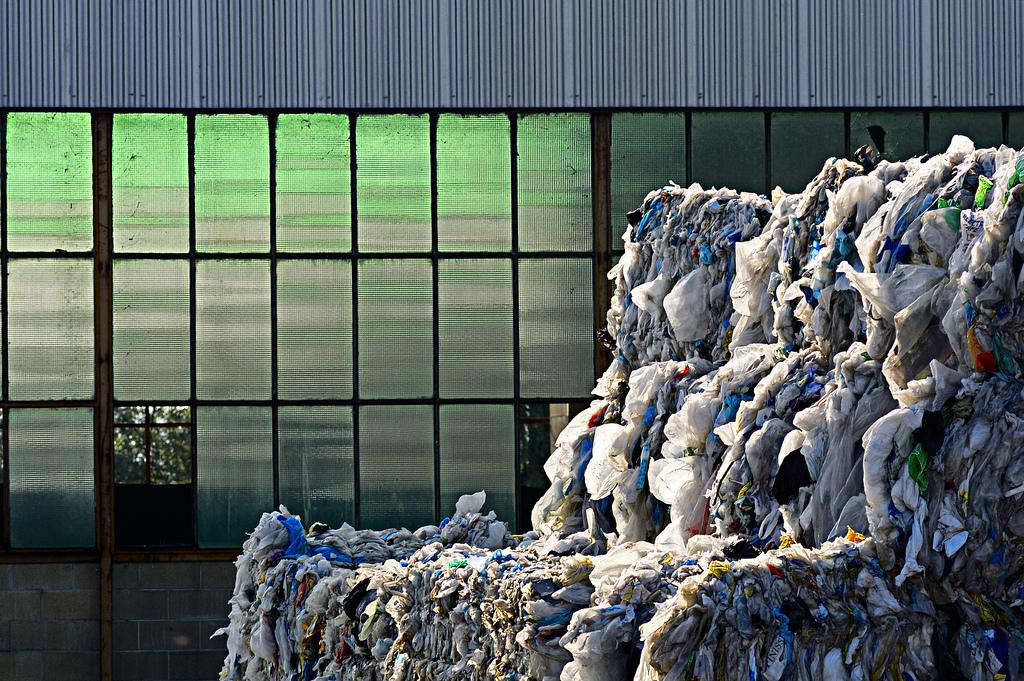Miroslav Vinkler: Plastic Wastes in the EU and USA - hypocrisy or fraud?<
Mishandling plastic waste has adverse effects on the environment. Illustration Image.License |Some Rights ReservedPhoto | Flavio Ronco / Flickr Annual global production of plastics has increased from 2 to 380 million tons since 1950 and is projected to double by 2035 and nearly quadruple by 2050. We know, ads are annoying. And we respect that you have them turned off :-) We will be happy if you support us in a different way. Please log in to hide adsForgot your password? Change them. Only those who have already registered can log in.
At the beginning of 2019, the EU exported approximately 150,000 tons of plastic waste per month. This figure was approximately twice as high in 2015 and 2016 - up to 300,000 tonnes per month, when exports were mainly to China and Hong Kong. The ban on imports to China (2018) was the reason for reducing and shifting the export of plastic waste to other countries in Asia. (India, Indonesia, Vietnam, Malaysia, Turkey ….)
Bad handling of plastic waste has adverse effects on the environment and climate, creating deposits of plastics and microplastics that appear on land and in rivers and oceans around the world. Plastic contributes to climate change through greenhouse gas emissions from production and waste management, and harmful effects from chemical use and consumption. Entire ecosystems are collapsing under the attack of plastics.
General information on plastic waste comes from the official website of the European Environment Agency. There is little or no information on how plastic waste imported from the EU is managed in other countries.

And now comes the promised hypocrisy, or rather deception.
For countries in Asia, imports are possible because large amounts of plastic waste have economic value. In addition, these countries do not have the same rules and regulations for waste management as in the EU, and therefore may dispose of plastic waste in a less controlled manner.
If plastic waste has an economic value, why doesn't the EU keep it and just use it economically?
The second absurdity is the claim that waste can de facto be exported to countries where local legislation allows it. Which means that it is literally a godsend to get rid of waste by placing it in post-colonial countries, where we exploit the low or no professional environmental awareness of the population in developing countries.
And just as ships with slaves once crossed the oceans to Europe, the same oceans are crossed by tankers loaded with waste to Asia, Africa, and South America.
The European Union is the largest exporter of plastic waste in the world, with the US being the largest exporter of this waste from a single country.
The reasons are exactly the same as in the past - the economy. Slaves provided cheap labor, the export of waste sharply reduces the necessary costs for its ecological disposal at the point of origin.
Globally, less than 10% of the approximately 6,300 million tons of plastic waste produced between 1950 and 2015 was recycled. More than 60% of the plastic ever produced (since 1950) is in landfills or in nature, including the oceans. The rest were burned or unaccounted for.
According to UN estimates, up to 5 trillion plastic bags are put into circulation every year. More than half of all plastic goes into consumer products, especially single-use packaging, and 99 percent of plastic is made from fossil fuels.
And how is plastic recycling done in Africa? In JAR it's hats, handbags and brooms; in Kenya durable fences; in Tanzania, mattresses and carpets; in Ethiopia and Senegalfashionable shoes made from old vehicle tires. In the Western Sahara, a young man built a house out of plastic bottles filled with sand. In Kenya, people have even built a boat out of recycled plastic brought in by the current of the Zanzibar River.
Plastics are at the end of the vast petrochemical industry, which is dominated by a handful of giant corporations (DOW, ExxonMobil, BASF, Chevron, DuPont..., for ČRSPOLCHEMIE, UNIPETROL.)
In the process of preparing the European Commission's "Plastics Strategy" in 2017, business representatives (including representatives of the PlasticsEurope industry association) had almost three times more access to Commission members than NGOs, and according to that, it is still the case today.
The masters of lobbying, petrochemical companies and plastic manufacturers, focus attention on waste management and recycling in order to avoid their responsibility for the real problem: the increase in the volume of plastics produced.
While a single ppm change in CO2 concentration in the atmosphere sends crowds into a frenzy and the EU has already committed to carbon neutrality by 2050, the equally important issue of waste is being locked away like a skeleton in the closet so as not to scare anyone in the EU.
And as a bonus for reading patiently, you can see how plastic is "recycled" in Africa, South America and Asia, the last picture from Haiti, the Caribbean port of Port Au Prince, is particularly appalling.
Africa
South America, Amazonia
Asia
Haiti
advertisement


 Tags:
Tags: Prev
Prev







